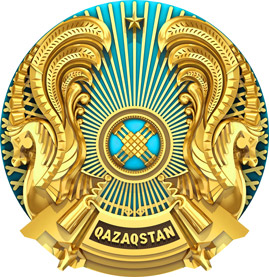Literature
Topics in this Section
Abay Kunanbaev (1845-1904). Abay was born in 1845 at the bottom of the Chingiz Mountain in the today’s Abai district (former Karkaraly) located in Eastern Kazakhstan region (formerly, the Semipalatinsk region).
He was a well-known Kazakh poet, a great thinker, composer, philosopher, the founder of written Kazakh literature, and its first classic.
The heritage he left his nation is rich in songs and poems, translations and prose. His translations of the poetry written by Russian writers and poets such as Pushkin, Lermontov, and Krylov became the national patrimony of Kazakhstan. He translated the works of Schiller, Goethe, and Byron into Kazakh language.
Abai Kunanbaev is the Shakesphere of Kazakh literature. His Book of Words, «Kara Sozder», created by the great thinker constitute an ethnic philosophical work. This creation of his is an exploration of Kazakh national life in the second half of the 19th century. He influenced social affairs in the country where he lived.
He also participated in the governing of the country and played a certain role in trying to solve complicated problems justly.
The name of Abai is known worldwide just as Shakespeare, Goethe, and Pushkin are well-known in many countries, because his great words became a spiritual patrimony of not only one nation, but of the entire humankind.
Abay’s main contribution to Kazakh culture and folklore lies in his poetry, which expresses great nationalism and grew out of Kazakh folk culture. Before him, most Kazakh poetry was oral, echoing the nomadic habits of the people of the Kazakh steppes. During Abay’s lifetime, however, a number of important socio-political and socio-economic changes occurred. Russian influence continued to grow in Kazakhstan, resulting in greater educational possibilities as well as exposure to a number of different philosophies, whether Russian, Western or Asian. Abay Qunanbayuli steeped himself in the cultural and philosophical history of these newly opened geographies. In this sense, Abay’s creative poetry affected the philosophical thinking of educated Kazakhs.
The leaders of the Alash Orda movement saw him as their inspiration and spiritual predecessor.
Contemporary Kazakh images of Abay generally depict him in full traditional dress holding a dombra (the Kazakh national instrument). Today, Kazakhs revere Abay as one of the first folk heroes to enter into the national consciousness of his people. Almaty State University is named after Abay, so is one of the main avenues in the city of Almaty. There are also public schools with his name.
Content from adebiportal.kz


